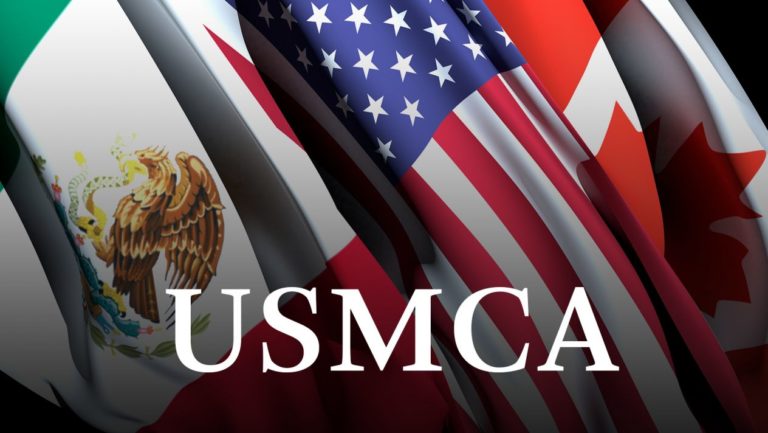
YCD Trivia: What is the USMCA?
United States-Mexico-Canada Agreement (USMCA)
The North American Free Trade Agreement (NAFTA) between the United States, Mexico and Canada is due to come into force in July 2020. The name of the agreement is: USMCA (United States-Mexico-Canada Agreement) CUSMA (Canada-United States-Mexico Agreement) ACEUM (Accord Canada Etats Unis Mexique) TMEC (Tratado entre Mexico, Estados Unidos y Canada). TMEC (Tratado entre Mexico, Estados Unidos y Canada)
What is the difference between USMCA and NAFTA?
USMCA has specific rules of origin that apply to each commodity, and USMCA replaces NAFTA Certificates of Origin with USMCA Certificates of Origin.
Under NAFTA, all zero-tariff products will remain zero-tariff under USMCA.
Origin Procedures:
A formal Certificate of Origin is no longer required for applications for preferential tariff treatment to be completed through a Declaration or Certificate of Origin (CO) or other documentation. A document containing a set of nine data elements must be submitted with the shipment to prove origin. A single CO can be used for a single shipment or for multiple shipments (if cleared together) A “valid certificate of origin” is a blanket certification of origin provided by the exporter, producer or importer covering all goods eligible for preferential treatment for a maximum of one year. A certificate of origin is not required when the value is equal to or less than the low value established by each country if the import does not form part of a series of imports.
Record keeping requirements must be met.
Minimum thresholds:
Low value threshold per country/territory: shipments from Canada or the United States to Mexico $1,000 shipments from Canada or Mexico to the United States $2,500 shipments from the United States or Mexico to Canada $3,300 Canada will increase the minimum rate of duty for North American express shipments from C$20 to C$40. It will also provide duty-free treatment for express shipments of up to C$150. Mexico would continue to offer a duty-free minimum of $50 and provide duty-free treatment for express shipments up to the equivalent level of $117. The United States will maintain the $800 minimum level.
Verification of Origin – Rules of Origin:
The USMCA includes strict rules of origin. Exporters and importers are responsible for ensuring that their shipments comply with the rules of origin and provide proper certification of the shipment USMCA Certificates of Origin may be completed by the importer, exporter, or producer of the shipment, and may be in any form/format, but must contain a minimum of nine (9) data elements Importers, exporters, and producers required to maintain records should make them available to the Customs Administrative Officer of the party conducting the validation inspection The parties inspecting the shipment must first determine who will produce the certification
(Importer, Exporter, or Producer) The parties (importer, exporter, or producer) may use the transaction value or net cost method, as needed, to calculate the regional value of the shipment using the RVC formula Component-origin merchandise is merchandise that is wholly obtained or produced entirely within the borders of one or more USMCA countries or merchandise that is produced with non-origin materials in one or more USMCA countries, provided that the The merchandise meets all product-specific rules of origin If the goods are determined by customs authorities to be non-origin goods, the exporter must tell anyone that it is supplying goods with special rules of origin .
